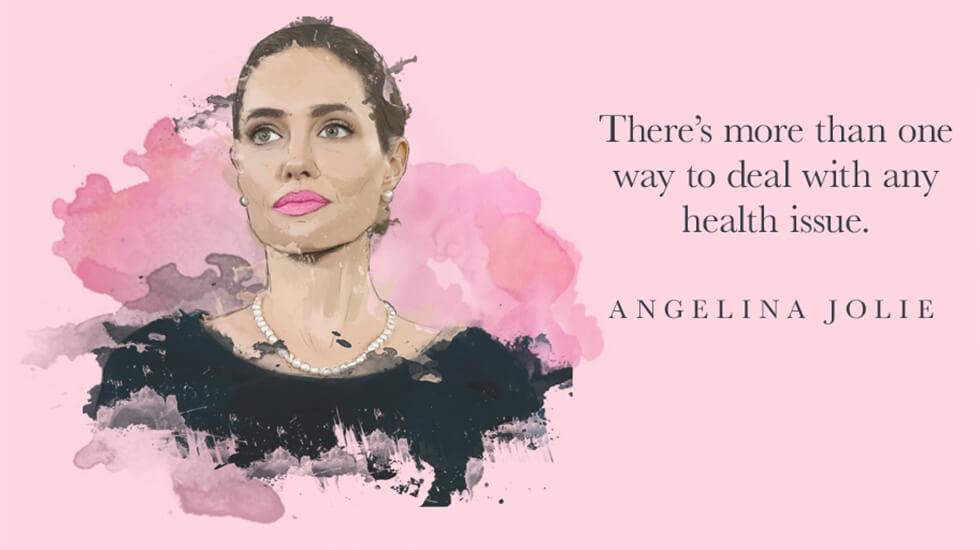


Academy Award-winning actress Angelina Jolie has been making headlines for nearly two decades for both on-screen work and global humanitarian efforts. We’re kicking off our March 2016 Women’s History Month series by recognizing her bold efforts to increase awareness of genetic breast cancer. She took on a new role in 2013, using her celebrity influence to promote breast health education through an editorial in The New York Times on her experiences with testing positive for the BRCA1 genetic mutation, a.k.a. “the breast cancer gene”.
Since the genetic mutation gave Angelina an estimated 87 percent chance of developing breast cancer and a 50 percent chance of developing ovarian cancer, she elected to have a preventive double mastectomy in 2013 and preventive oophorectomy (the removal of her ovaries and fallopian tubes) in 2015. She points out her course of treatment may not be ideal for every woman: “There is more than one way to deal with any health issue. The most important thing is to learn about the options and choose what is right for you personally.” We could not agree more—we continually advocate for women to be proactive about their own breast health and to partner with their doctors to understand their options.
Genetic testing should not be taken lightly. We recommend women who believe there may be genetic breast cancer in their families (due to a mother, sister, or daughter with the disease), speak with a genetics counselor about whether to test, as well as the ramifications of a positive test result. Testing positive for BRCA1, BRCA2, or other breast cancer genes may bring a mix of emotions and could influence a woman’s future decisions, including whether to have children. These are not easy decisions, but a trained professional can provide the insights and resources to help a patient navigate them.
While most women diagnosed with breast cancer have no family history of the disease, we are grateful that doctors continue to make advances in breast cancer research and individualized cancer care. Countless young people, including Angelina’s three biological children, now have greater options that weren’t available to the generations before them…and these options may enable them to make history of their own.
Stay tuned throughout the month as we continue to celebrate history-making women and honor their stories of Helping Women Now.
Donations are always appreciated, but there are lots of great ways to get involved.
Comments are closed.